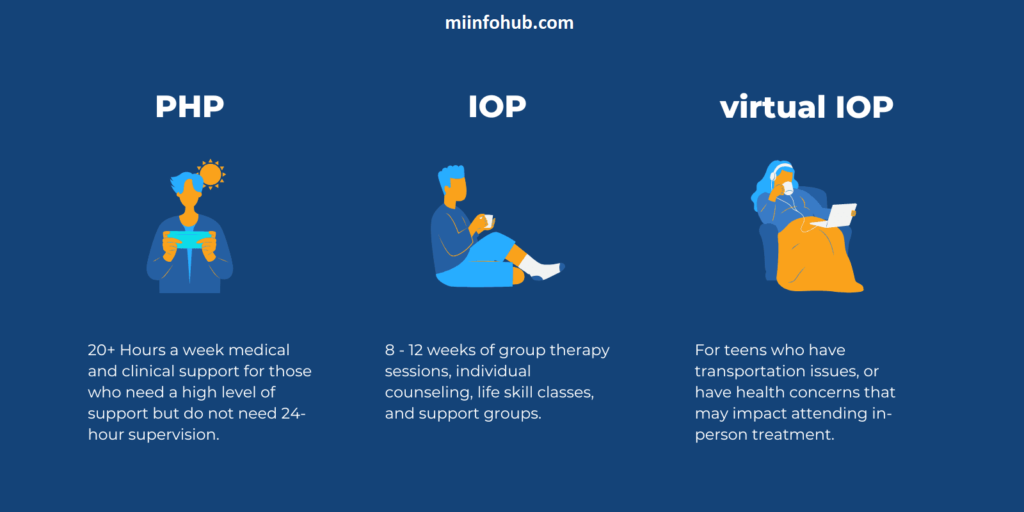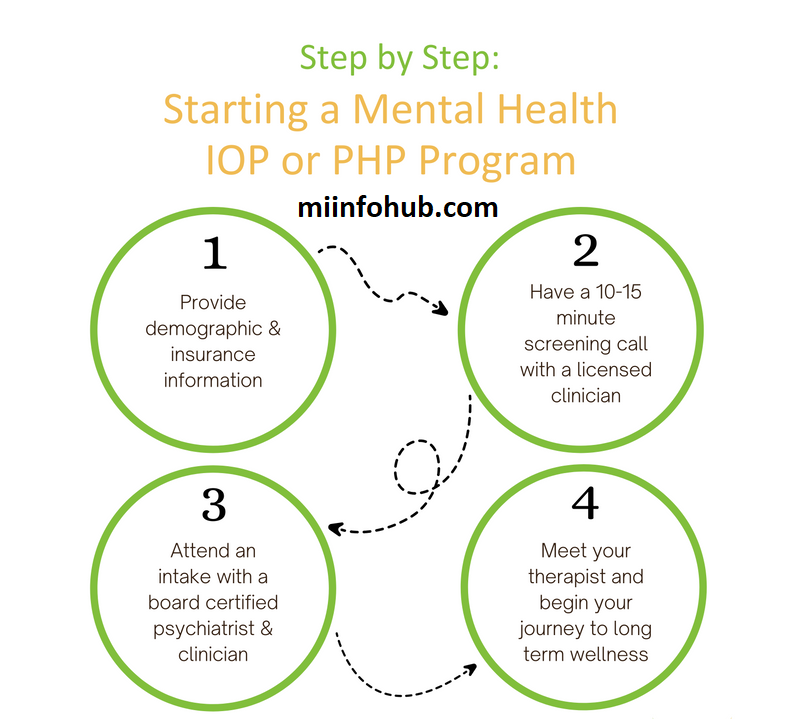In mental health care, PHP stands for Partial Hospitalization Program. It is an intensive treatment program designed for individuals who need more support than outpatient care but do not require full hospitalization. PHP offers daily therapy, counseling, and support but does not include overnight stays. This setup is ideal for those dealing with severe symptoms yet able to maintain some daily routines. Here’s everything you need to know about PHP in mental health, including how it works, benefits, and how to determine if it’s the right choice for you.

Why PHP Is Important?
PHP is essential for many in mental health recovery, providing intensive support to stabilize symptoms, improve coping skills, and prevent hospitalization. By offering daily, structured care, PHP enables individuals to receive consistent support while remaining in a familiar environment at home. If you want to know about what is gap health insurance then click here.
Who Benefits From PHP?
PHP is ideal for individuals who:
- Experience severe mental health symptoms but do not need 24-hour care.
- Are transitioning from inpatient to outpatient care.
- Require a structured program to support daily routines and responsibilities.

How PHP Works?
PHP programs are structured to meet individual needs. Here’s a breakdown of a typical PHP schedule:
Daily Schedule:
- Patients attend treatment sessions five days a week, typically 4-6 hours per day.
Therapies Offered:
- Individual Therapy: One-on-one sessions with a therapist.
- Group Therapy: Therapy sessions in a group setting for shared support.
- Family Therapy: Involves family to support recovery.
- Medication Management: Regular medication consultations.
- Skill-Building Sessions: Training in coping, stress management, and mindfulness.
Flexibility:
- Patients return home at the end of each day, which allows them to practice new skills in real life.
Success Rates And Outcomes Of PHP Programs
PHP programs have shown positive outcomes for many patients. Success rates often include symptom reduction, improved quality of life, and enhanced coping skills. Research shows that structured day programs like PHP are effective in reducing hospitalization rates and helping individuals maintain stable mental health. Having access to regular support and resources helps participants reach stability faster than traditional outpatient therapy alone.

Types Of Therapy Used In PHP
PHP typically incorporates several therapeutic approaches, including:
- Cognitive Behavioral Therapy (CBT): Focuses on identifying and changing negative thought patterns.
- Dialectical Behavior Therapy (DBT): Helps with emotional regulation and coping skills.
- Trauma-Informed Therapy: Addresses trauma as a part of mental health treatment.
- Mindfulness-Based Therapy: Promotes mindfulness and stress reduction techniques.
Key Benefits Of PHP
- Intensive Support: PHP offers structured support without the need for hospitalization.
- Flexible Care: Patients can receive intensive treatment while staying connected to family.
- Cost-Efficiency: PHP is generally more affordable than inpatient hospitalization.
- Skills for Daily Life: Patients can practice real-world coping skills each day.
Comparing PHP With Inpatient And Outpatient Programs
| Program | Description | Best For |
|---|---|---|
| Inpatient | 24-hour care with overnight stays. | Acute mental health crises needing constant care. |
| Partial Hospitalization (PHP) | Daytime treatment with return home. | Severe symptoms needing support but no overnight care. |
| Outpatient | Weekly or bi-weekly sessions. | Mild to moderate symptoms needing flexible support. |

Conditions Treated In PHP
PHP can treat a variety of mental health conditions, including:
- Depression: Intensive support for managing severe depressive symptoms.
- Anxiety: Treatment for chronic or severe anxiety.
- Bipolar Disorder: Stabilization and management of bipolar symptoms.
- Eating Disorders: Structured support for treating eating disorders.
- Substance Use Disorders: Includes therapy for addiction recovery.
Cost Of PHP And Insurance Options
PHP costs vary widely based on the facility and location, generally ranging from a few hundred to a few thousand dollars weekly. Many health insurance plans cover partial hospitalization as part of mental health benefits, but coverage varies, so it’s best to check with your provider. PHP can be a more cost-effective alternative to inpatient care.

How PHP Fits Into A Long-Term Mental Health Treatment Plan
PHP often acts as a bridge between intensive inpatient treatment and standard outpatient therapy. It provides a high level of care without full hospitalization, offering a foundation for patients as they move toward independence. PHP can be a critical step in a long-term plan for individuals needing intensive care at certain points in their mental health journey.
How To Prepare For PHP
To prepare for PHP, consider these tips:
- Arrange transportation for daily travel to the facility.
- Set up a support system of family or friends who can assist.
- Prepare for flexibility in work or school schedules, as PHP requires a significant time commitment.
Real-Life Stories Of PHP Experiences
Many patients experience significant improvement in PHP. For example, a patient with severe anxiety might enter PHP and receive daily therapy sessions and group support. Over time, they develop coping skills, practice mindfulness, and engage in group therapy to manage their symptoms. By the end of the program, they transition to a less intensive outpatient therapy while maintaining progress and stability gained in PHP.
Pros And Cons Of PHP
| Pros | Cons |
|---|---|
| Intensive, structured daily support | Requires significant time commitment |
| Patients maintain connection to home | Can be challenging for those with work/school obligations |
| Lower cost than inpatient care | Insurance coverage may vary |
| Offers a safe environment to practice skills | Daily travel to the facility may be required |

Common Challenges Faced In PHP
Some challenges patients face in PHP include:
- Adjusting to Routine: Intensive daily sessions may feel overwhelming initially.
- Balancing Responsibilities: Attending PHP while managing family, work, or school can be challenging.
- Coping with Therapy Intensity: Some may find frequent therapy emotionally demanding. Support from staff helps patients address and overcome these challenges effectively.
Common Questions About PHP In Mental Health
- How long do PHP programs last?
PHP programs typically last 4-8 weeks, depending on individual progress. - Does insurance cover PHP?
Many insurance plans cover partial hospitalization, but coverage varies by provider. - Can I work or go to school while in PHP?
PHP requires significant time, so it may be difficult to work or attend school full-time. - Is PHP available for both adults and adolescents?
Yes, there are age-appropriate PHP programs for both adults and adolescents.

Conclusion
Partial Hospitalization Programs (PHP) offer essential support for those dealing with severe mental health issues, providing a safe environment for therapy, skill-building, and recovery. If you or a loved one needs more than outpatient care but not full hospitalization, PHP could be the right choice. Speak with a mental health professional to see if PHP is suitable for your treatment needs and find a program that can help you regain stability and continue your path to mental health recovery.


